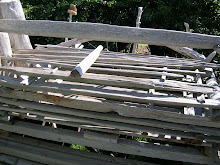
Everything starts somewhere; and I started out my musings on play by considering why we don’t play. I collected several threads and followed them. I put them here near the end because they mattered to my thinking about play. They aren’t about play; they are about not playing. So here they are.
Assoociations and assumptions that limit playful behavior
**Who plays?
only children play.
Somehow this rich realm of healing activity exists as a child’s domain. As a powerful religious injunction states, “When we were children we behaved in childish ways, and then we put those ways aside.” I think buried in the injunction lurks an attempt to take away from us one of our inherent tools of self-healing. Why would anyone wish to take away from a human being direct access to our own soul and healing potential? An obvious answer would be to undermine our autonomy. This autonomy we spend much of our productive adult life attempting to reclaim and defend. We engage in meaningful work that at a minimum provides us with an income with which to support our selves and eventually our family. This serious struggle represents adult life, an adult life heavily weighted toward responsibility. Bearing that responsibility feels like a serious matter. Vacations and weekends believed to be the break from those responsibilities become times when we intend to visit some formalized remnant of play. Rest becomes synonymous with play. Gradually many of us find the burdens of time off more exhausting than the structured time we refer to as work. So now we find ourselves in a bind. We teeter out of balance. But this needn’t be, so we could assume that play inherently belongs to humans of any age involved in every activity.

No comments:
Post a Comment